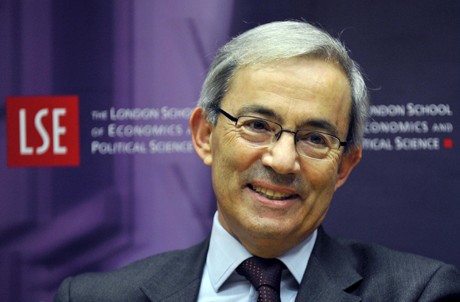
Nobel economists split on how to vote in Greece's eurozone referendum
As the Greek crisis is escalating, top analysts and the smartest minds are reflecting on how they would vote in the upcoming referendum.
In the past two days three Nobel economic laureates explained their views on what has been called the 'Greferendum.'

Joseph Stiglitz
In an article for The Guardian, Joseph Stiglitz analyzed the economic circumstances surrounding the
call for a national vote before weighing both options.
Stiglitz said that conditions the Troika of the European Commission, the European Central Bank, and the International Monetary Fund imposed on Greece have been startling resulting in a 25% decline in the country’s GDP and youth unemployment rate exceeding 60%.
"But what is even more surprising is that Europe’s leaders have not even learned. The troika is still demanding that Greece achieve a primary budget surplus (excluding interest payments) of 3.5% of GDP by 2018."
A 'yes' vote would mean an endless depression, he said. While it might finally enable Greece to get debt relief and assistance from the World Bank in the next decades, citizens would have to pay a heavy price, Stiglitz noted.
The result could be a "depleted country – one that has sold off all of its assets, and whose bright young people have emigrated."
The “official” creditors including the IMF do not need the money that is being demanded. Under a business-as-usual scenario, the money returned would most likely just be lent out again to Greece. So, why do they do this? Here is what Mr Stiglitz says:
"Many European leaders want to see the end of prime minister Alexis Tsipras’ leftist government. After all, it is extremely inconvenient to have in Greece a government that is so opposed to the types of policies that have done so much to increase inequality in so many advanced countries, and that is so committed to curbing the unbridled power of wealth. They seem to believe that they can eventually bring down the Greek government by bullying it into accepting an agreement that contravenes its mandate."
Joseph E. Stiglitz, a Nobel laureate in economics, is University Professor at Columbia University. His most recent book, co-authored with Bruce Greenwald, is Creating a Learning Society: A New Approach to Growth, Development, and Social Progress.

Christopher Pissarides
In an interview with Deutsche Welle, Christopher Pissarides urged Greeks to vote 'yes' in the referendum on Sunday.
He explains that the whole crisis is a long story of economic mismanagement, and the Greek government is the one to blame for the missed deadline, as they had had six months before the red line. Pissarides says he would vote 'yes' "just to show that the Greeks do want to stay in the euro and they want
to sit down at the negotiating table and work out something feasible for
the benefit of both Europe and Greece."
The Nobel laureate disagrees with the measures imposed on Greece, saying that the creditors made its debt unserviceable and harmful for the economy. While the debt should be renegotiated, he thinks Greeks "didn't quite negotiate the way they could have done from the beginning to get what they wanted and avoid this crisis now."
Pissarides calls on the Greek to vote 'yes', as with the banks currently closed, he says the Greek people now feel how hard it is to run the banking system and doing business without any support from the side of the European Central Bank. Beginning a new cycle on Monday may start only if the conditions imposed on Greece are feasible.
Sir Christopher Pissarides was awarded the 2010 Nobel Prize in Economics, jointly with Dale Mortensen of Northwestern University and Peter Diamond of MIT, for his work in the economics of markets with frictions. He is professor of Economics at the London School of Economics, professor of European Studies at the University of Cyprus and chairman of the Council of National Economy of the Republic of Cyprus, and professor-at-large of the Hong Kong University of Science and Technology.

Paul Krugman
Paul Krugman, another Nobel Prize winner shared his thoughts in his New York Times blog. He says he would vote 'no' for two reasons. He sides with Stiglitz saying that the Troika's demands will continue indefinitely and there is no hope for some light in the tunnel. But devaluation spurred by Grexit would not create that much more chaos than already exists, and would pave the way for eventual recovery, as it has already done in many countries.
"The troika clearly did a reverse Corleone — they made Tsipras an offer he can’t accept, and presumably did this knowingly."
Here he again agrees with Stiglitz suggesting that it was made with an intention to dethrone the Greek government, what is disturbing for everyone who believes in the European values.
Paul Krugman is an American economist, a Nobel Prize Winner, Professor of Economics and International Affairs at the Woodrow Wilson School of Public and International Affairs at Princeton University, Centenary Professor at the London School of Economics, Distinguished Scholar at the Luxembourg Income Study Center at the CUNY Graduate Center.


